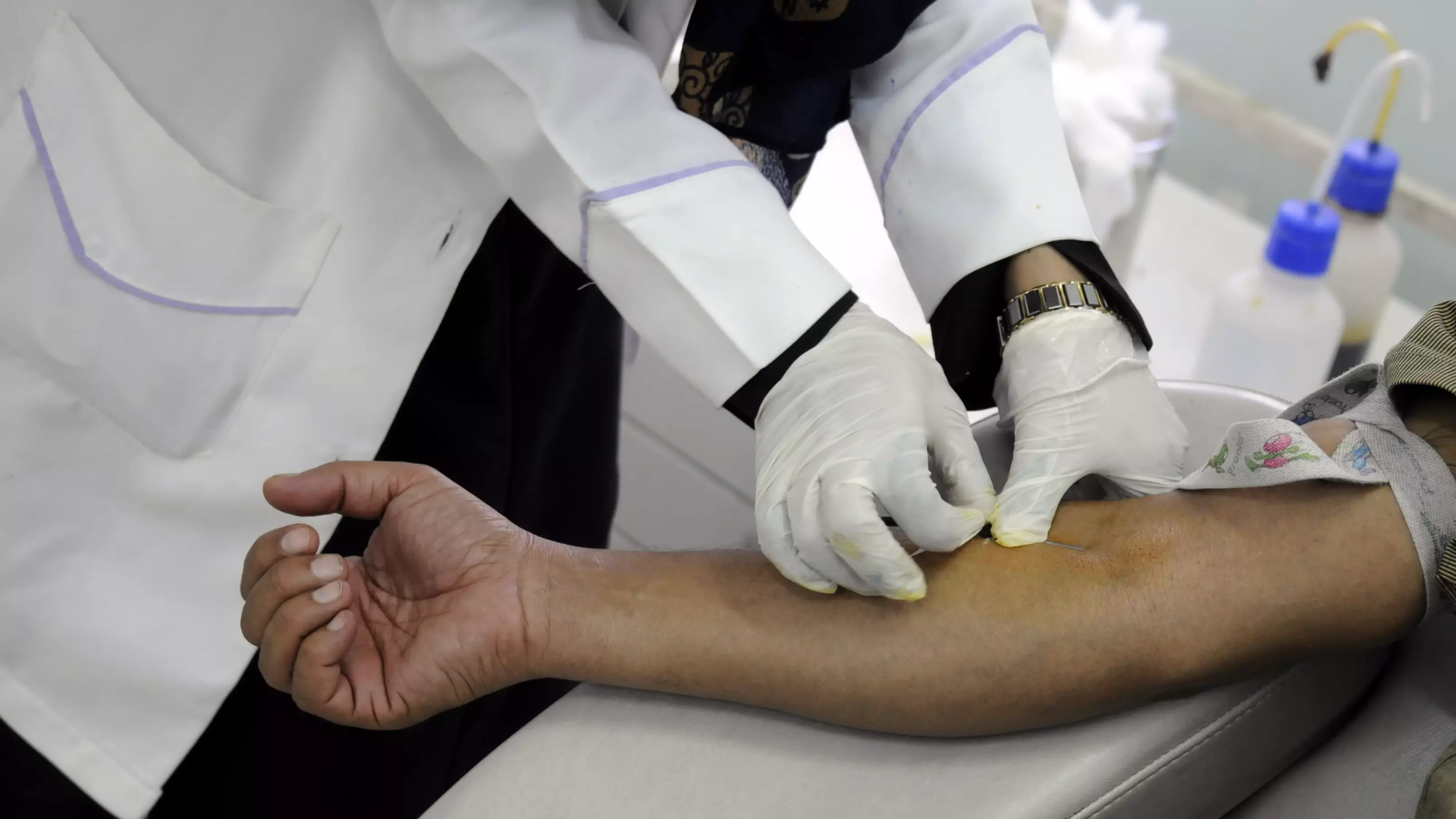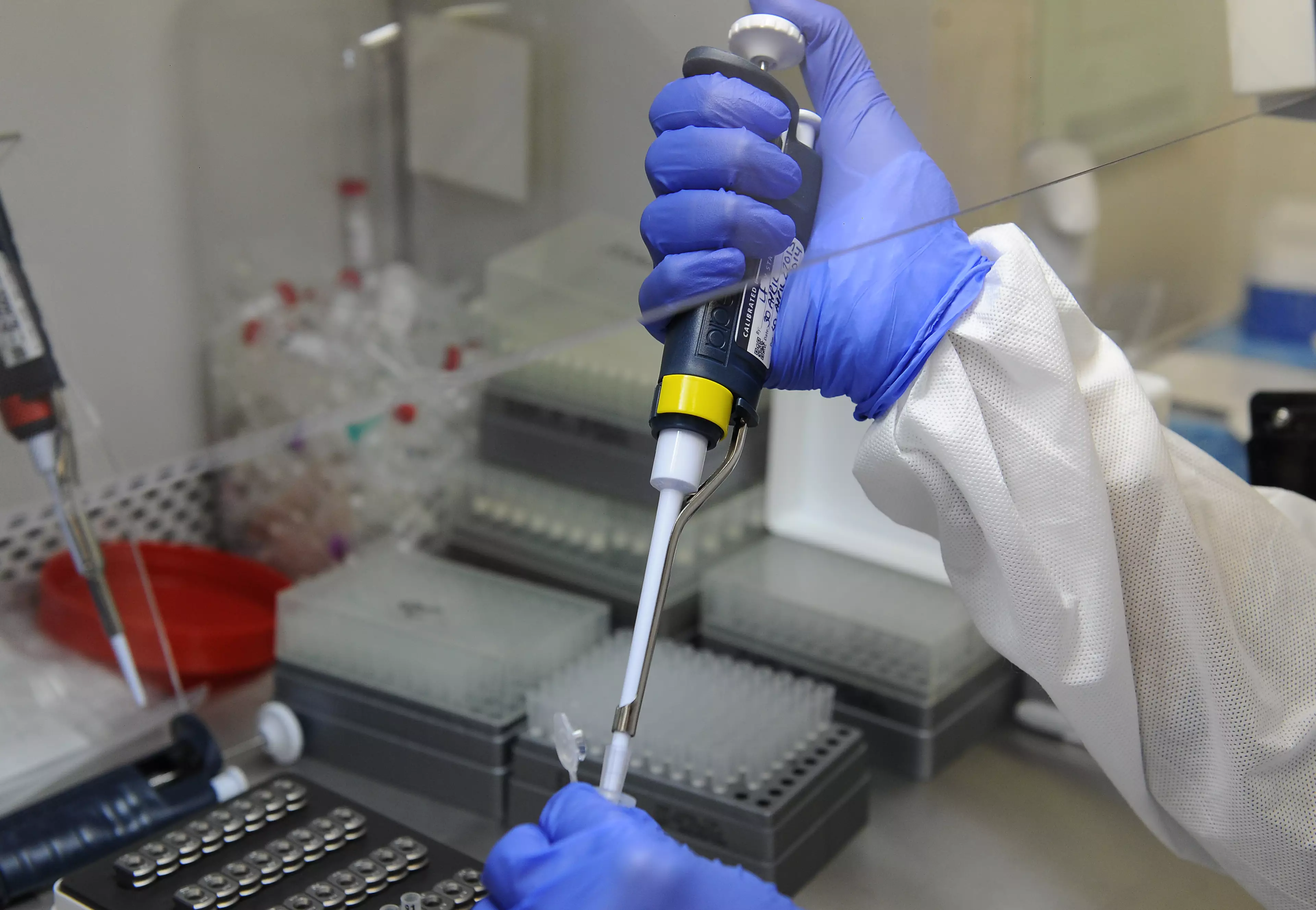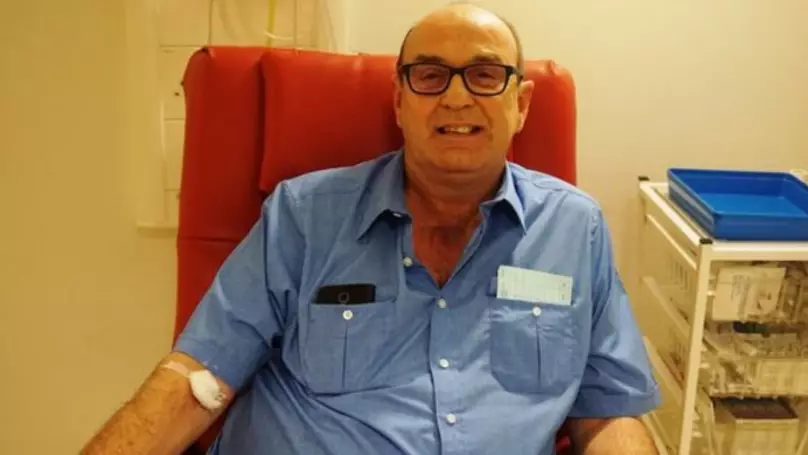
Chemotherapy could be causing cancer to spread and to grow back more aggressively, new research has claimed.
Scientists at New York's Albert Einstein College of Medicine found evidence that the treatment - often the first option for cancer patients - is sometimes only a short-term solution. While it does shrink existing tumours, it could help spread cancer around the body.
Lead author Dr George Karagiannis said that the findings should not deter patients from seeking treatment, but in the long-term it could lead doctors to change how they monitor tumour movement in patients undergoing chemotherapy.
Dr Karagiannis told the Telegraph that women with breast cancer could be monitored during chemotherapy to check whether cancer was starting to circulate, or if 'doorways' in the blood vessels were emerging.

Credit: PA Images
"One approach would be to obtain a small amount of tumour tissue after a few doses of preoperative chemotherapy," he said.
"If we observe that the markers scores are increased we would recommend discontinuing chemo and having surgery first, followed by post-operative chemo. We are currently planning more extensive trials to address the issue.
"In this study we only investigated chemotherapy-induced cancer cell dissemination in breast cancer. We are currently working on other types of cancer to see if similar effects are elicited."
The era of using chemotherapy to treat cancer began in the 1940s with the first use of nitrogen mustards and folic acid antagonist drugs - with the effectiveness of the treatment discovered during World War II.
Advert
Earlier this year we reported how a new wonder drug had saved the life of a cancer patient who doctors had given 18 months to live, after he underwent a clinical trial.

Credit: The Christie
Bob was referred to The Christie, and a course of radiotherapy and chemotherapy followed, but this was also unsuccessful.
Bob's doctors then decided to send him to the clinical trials unit and 12 months ago he was given a brand new drug, which has not yet been named.
Alongside the drug, Bob was also given immunotherapy, which uses patients' own immune systems to fight cancer. At his last check-up there was no sign of any cancer in his system.
So there are some good signs for medical researchers going forwards.
Featured Image Credit: PA ImagesTopics: Cancer